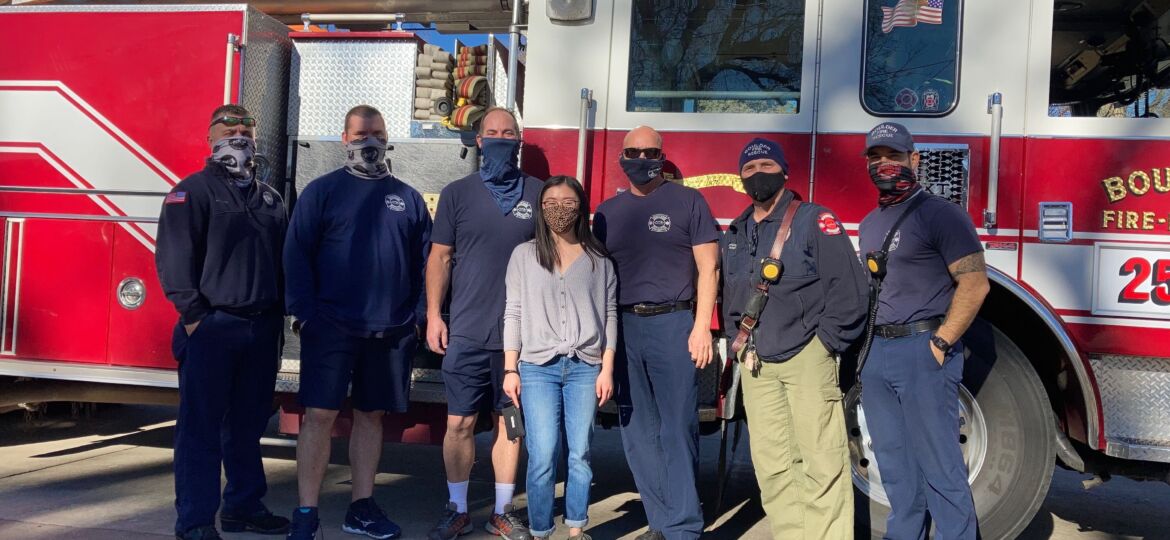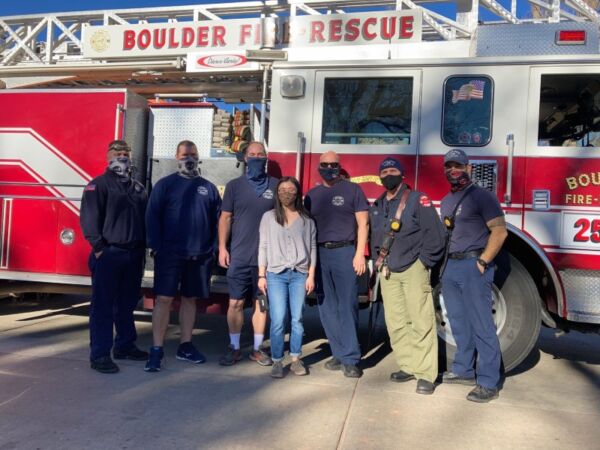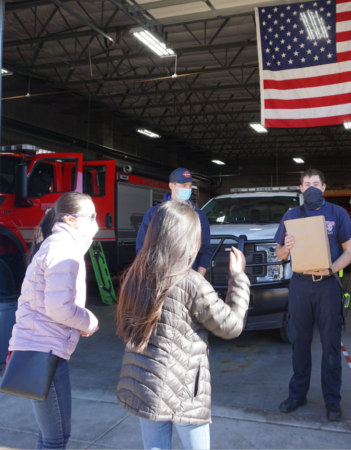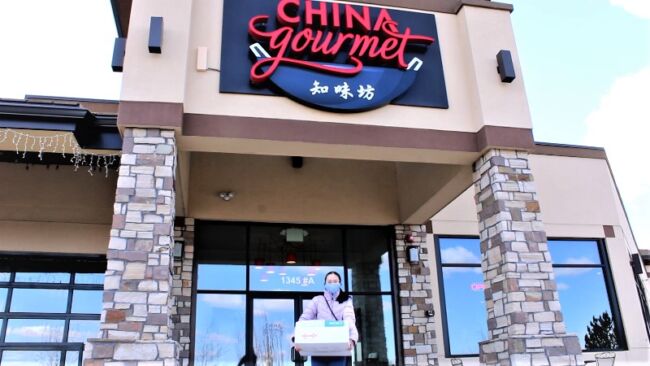
Confronting Anti-Asian Racism: “Unmask the Racism”
Unmask the Racism, a student-led social media campaign through CU Boulder, uses their collective power on social media platforms to address the increased racism that has ensued as a result of the COVID-19 pandemic. Despite the turbulences the country has been through during the past year, these student organizers remain hopeful for future empathy and communication.
By Areyana Proctor
Mediated platforms have been a source for racism for as long as they have existed. They have not escaped the structures of an innately racist system. The power that certain people are allocated has an impact on the direction that society takes and the attitudes that people eventually shape.
While it may be easy to say that this is the past, nothing has been done to address the underlying conditions that led to terrible atrocities in our country. These festering inequalities have also been evident in the material world, especially with the pandemic that has persisted throughout this past year.
During the start of the pandemic, many small businesses were hit extremely hard. People that work at restaurants are typically paid below the minimum wage because they rely on tips as a big source of income. According to the U.S. Department of Labor, the federal minimum cash wage is $2.13 per hour in 2021. Some states require employees to pay full state minimum wages before tips, while others require the cash wage to be set above the federal cash wage. This means that cash wages for tipped workers ranges from $2.13 to $14 per hour, depending on the state. The federal minimum wage alone is $7.25, which on it’s own may not always be an actual living wage for many citizens. According to Business Insider, someone earning $7 per hour would not be able to afford the average rent prices in the U.S.
With the pandemic in full swing, significantly less people chose to dine in, resulting in less income for restaurants and diners. Others were out of a job completely, affecting many people’s livelihoods.
Asian-American business owner activity dropped by 26% during the pandemic, in comparison to 22% in all small business owner activity. Beyond the financial burdens and new government issued protocols, these Asian-owned businesses simultaneously experienced racism, much stemming from ignorance and blame from Wuhan, China, which was continuously perpetrated within the media.
Throughout 2020, former President Donald Trump continued to use the phrase “Chinese Virus” on national TV when referring to COVID-19. While some may simply see this as a matter of free speech, this in fact can and did have an impact on the way Asian Americans in our country were treated. According to Time, after March 2020, when the pandemic began to surge in the U.S., so did the number of attacks and assaults against Asian people.
This week, a shooting on the night of March 16, 2021 claimed eight lives and shows the tangible potential that media impact can have and how prevalent this issue still is. Six of the eight victims were women of Asian descent, and the shooting was carried out in a number of spas in the Atlanta area. While it is yet to be designated a hate crime, the motive behind these murders elicits the perpetrator purposely targeted businesses that he knew had Asian employees.
Racism against Asian people in this country existed long before the pandemic. Along with other minority groups, Asians have long been deemed “unfit for citizenship”. This spurred the Chinese Exclusion Act, which placed a 10-year hold on anyone wanting to migrate from China. President Roosevelt signed the Executive Order that sent many people of Asian descent to internment camps in the 1940s. These effects have rippled into the inequities within our modern system.
The blatant rhetoric displayed on TV by a public official and leader perpetuated others to feel more emboldened to act on racist ideologies and impulses. For example, according to an article by ABC News, there are more than 20 reports of elderly Asian people being attacked and injured, local stores being robbed and Asian business owners and customers being assaulted. Happening in mid-February 2021, many people are still continuing to face negative repercussions almost a whole year after the pandemic began.
According to a study written in the American Journal of Criminal Justice, the number of hate incidents reported began to increase as a result of the xenophobic and racist language continuously used by public officials. Despite the rise in hate crimes against Asian Americans, a community organization on campus known as Unmask the Racism has found a way to tackle the increased racism Asian Americans have been dealing with since the pandemic began in a creative way.
Unmask the Racism is a social media campaign, founded in Boulder, Colorado, that was designed to address xenophobia and racism against people of Asian heritage.
Members of Unmask the Racism assist businesses and services in Boulder to bridge divides within the community and dispel the anti-Asian rhetoric surrounding Asian owned businesses. (Photos courtesy of Kimberly/Unmask the Racism)
Kimberly, who is a student at CU Boulder majoring in mechanical engineering, and Joe, a student in environmental engineering, are two members on the team. They described their campaign, the work they have done and the hopes they have for the future moving forward.
The campaign, Unmask the Racism, works to combat the structural inequities that lead to racist systems and attitudes, especially starting with an acknowledgement to understand history.
According to Kimberly, “We’ve also done a lot of history so that people know a little bit about where the history of racism comes from.”
They also recognize the importance of taking actions and steps to bring people together. “We also do a lot of social media on that part, and we are working on trying to promote local Asian businesses because, during the time of [COVID-19], a lot of businesses aren’t getting their regular customers coming in as usual. With the added racism, a lot of people are avoiding Asian restaurants or Asian businesses in general. So, we wanted to promote them and we started a hashtag called #wokitout.”
The hashtag, #wokitout, is a social media campaign that allows people to show their support for the Asian businesses that are facing the backlash of the pandemic. The spelling of #wok is significant because, by definition, a wok is a cooking pot with origins from China. Unmask the Racism created this connection between this traditional Asian cooking ware and its connection to their modern activist stance against anti-Asian racism and hatred going on right now. This word, placed within this phrase, also sounds like the words “work” and “woke” which both connote working towards change and being woke, or aware, to the cause.
With this hashtag, participants can go to an Asian restaurant of their choosing, order a meal and then post a picture to their social media with the hashtag #wokitout. This allows others to see that these businesses are still open and in need of customers, now, if not more than ever. It also helps to dispel the hate and worries that some people may have about ordering food from businesses in the midst of everything.
A large aspect of Unmask the Racism’s campaign is creating space for that much needed conversation, which is not only needed within groups outside of the community but also from within.
Kimberly said, “Within the Asian community, [racism] is not something we speak openly to our families about. It’s like a collectivist idea that you don’t want to put more sadness, pressure or work for the family, or just the community or group to worry about.”
Joe speaks to the ways that conversation on the policy and macro levels are important as well. “When you report it, the police might pursue it, but there’s nothing much that can be done unless there’s actual physical harm. That is because America has freedom of speech. With that system in place, it allows people to say whatever they want, but it can have consequences behind it,” Joe said. “I think that the way to address it before that happens is to understand and accept our differences. We should all recognize that we are all collective human beings so that we can all help each other.”
Both Kimberly and Joe speak to the ways that the model-minority myth also hurts the work to dispel anti-Asian racism. The model-minority myth is the idea that members of a minority group are higher achieving than other minority groups, and thus face less oppression, which is also damaging to the conversation that needs to happen because it allows oppression to continue.
Kimberly said, “It hurts all minority groups, but the way it hurts Asians is it makes it seem like Asians don’t have racist acts towards them. It’s just not discussed as often.”
For the members of this campaign, just as in any campaign, they of course encountered bumps in the road.
“With any campaign you’re gonna have to start a plan, and if the plan goes wrong, then you need to replan and replan,” Joe said. “For us, we started the campaign and we thought that our direction was kind of wobbly, we didn’t have a true sense, so what we did was restructure. That consisted of a plan, so now we have a clear sense of what the end goal is and a plan for what’s going on. It was a lot of planning and communicating. A lot of understanding of the social nuances of a campaign.”
To move forward, “Checking your implicit biases is always important,” said Kimberly. “Sometimes, the way we talk to one another can also garner negativity. If you talk negatively about yourself, then someone else will also talk negatively about you, so just represent yourself well. Representation is important.”
In order to support their campaign, Joe urges the community “to just stay educated. Our campaign aims to educate and spread awareness, so it is important to look beyond the scope of our campaign and focus on society. We hope to inspire more education around such issues and have less of a stigma around such issues, which would allow for more collaboration among ethnicity groups.”
– – –
Writer’s Note: Kimberly and Joe’s last names are not included to protect their privacy.
In order to support Unmask the Racism, follow them on all of their social media accounts which includes their Instagram, Facebook and Twitter. Also, keep updated on their website, and if you are able to, consider donating. If not, then make sure to share with your friends and peers and on your own social media websites. Spread the hashtag #wokitout.
Although it has been almost a whole year since the start of the pandemic, this campaign is still just as relevant if not more than ever. As humans, we may want to gravitate towards trends that we believe are cool, but it is important to remember that this is not just a trend, but an organization seeking to create meaningful and lasting systemic change. Many businesses are still suffering, racist ideas still exist and the state of our nation is still on edge, despite a new President currently sitting in White House. Continuing to support campaigns like Unmask the Racism is very important in order to keep the momentum going and create the change that we have been talking about for centuries now.
On April 7, The Center for Inclusion and Social Change will be hosting an event on Zoom from 5-6:15 pm MST, talking about Anti-Asian racism in the time of Covid-19. Attending and learning from events like these helps us all be better allies and contributors towards a just world. Also, on March 24, an inclusive sports summit will be held virtually, which allows for people to become more aware of social issues through the lens of sports. You are able to sign up for this event here.




